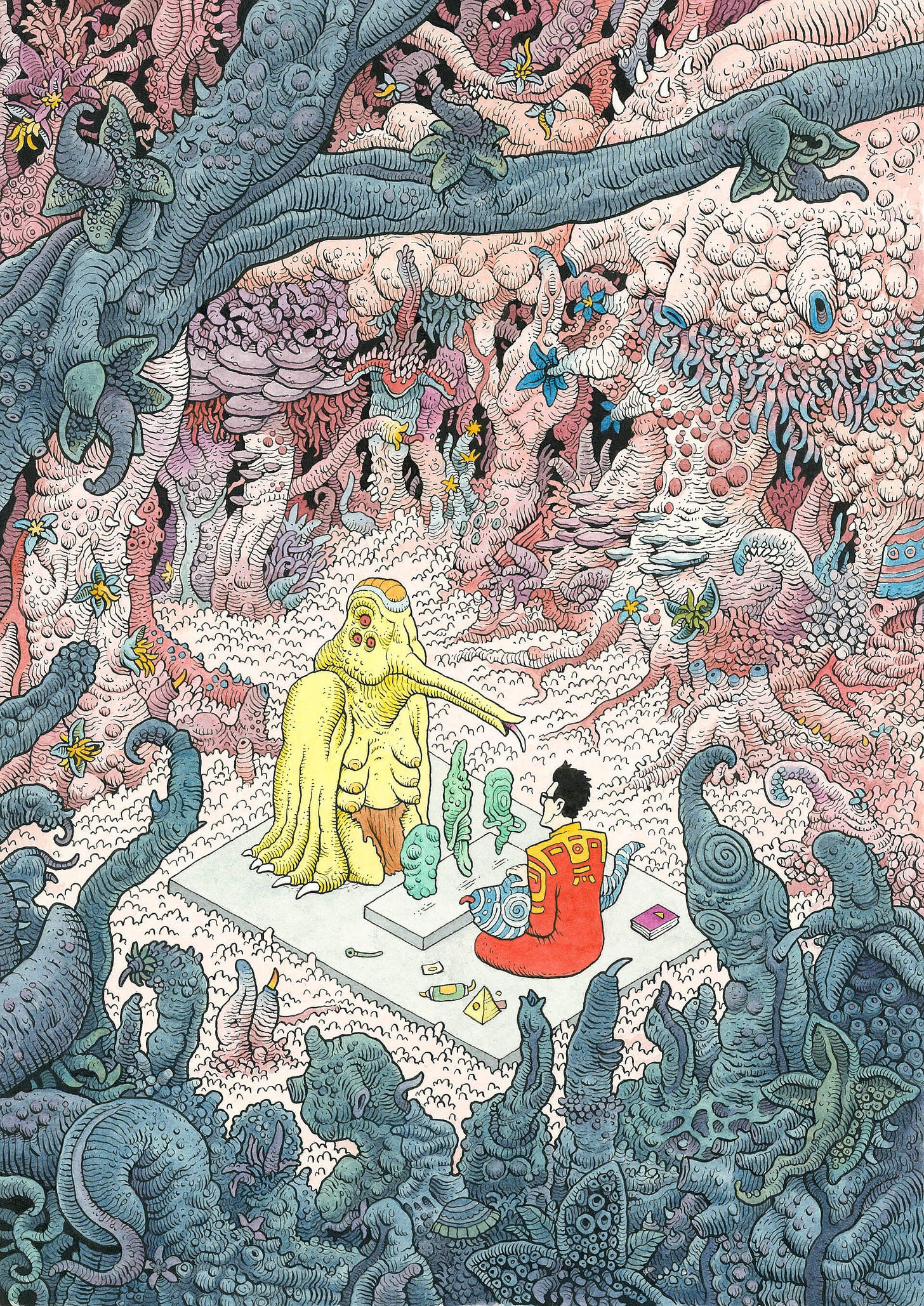Mœbius.
Exploring the Boundless Frontiers of Artistic Imagination.
The realm of art has been shaped by countless luminaries whose innovative creations transcended their time and left an indelible mark on the cultural landscape. Among these trailblazers stands the figure of Mœbius, a pseudonym for the gifted French artist Jean Henri Gaston Giraud. Born on May 8, 1938, in Nogent-sur-Marne, France, Mœbius emerged as a visionary force in the world of comics and illustration, captivating audiences with his extraordinary capacity to transport them into realms of unparalleled imagination.
Mœbius's artistic journey unfolded against a backdrop of societal and cultural shifts that laid the foundation for his unique approach. Emerging from a post-war Europe, his formative years were steeped in the influences of comic book art and the burgeoning science fiction genre. These influences coalesced to shape Mœbius's distinctive style, characterized by a fusion of intricate detailing, surrealism, and a profound exploration of the unknown.
At the heart of Mœbius's impact was his role as a founding member of Métal Hurlant (Heavy Metal), a groundbreaking French comic magazine. This publication provided a platform for European comic artists to reach a global audience, and Mœbius's contributions were at the forefront. His storytelling prowess was evident in his ability to craft intricate narratives that unfolded in otherworldly settings. The Airtight Garage, one of his notable works within the magazine, showcased his penchant for immersive storytelling and intricate, multifaceted worlds.
Mœbius's artistic evolution was characterized by an insatiable curiosity that led him to continually push artistic boundaries. His exploration of science fiction and fantasy extended beyond traditional comic panels. Collaborations with writer Alejandro Jodorowsky resulted in iconic works like The Incal and The Metabarons. These graphic novel series not only showcased Mœbius's exceptional skill in creating visually captivating worlds but also delved into philosophical inquiries, mysticism, and the human condition.
In The Incal, Mœbius's illustrations seamlessly intertwined with Jodorowsky's narrative, creating a symbiotic relationship that elevated both storytelling and art. The visual complexity and symbolism found within Mœbius's panels invited readers to engage in multidimensional storytelling that extended beyond the surface level.
Beyond comics, Mœbius's influence extended to the realm of cinema. His collaboration with filmmaker Ridley Scott on the production design for the iconic film Alien is a testament to his ability to translate his distinct visual language to the silver screen. Mœbius's contributions to the film's otherworldly aesthetics played a pivotal role in shaping the science fiction genre's visual lexicon.
Mœbius's artistry was a tapestry woven from diverse influences. His exploration of indigenous art and spirituality, including Native American motifs, found expression in his work, infusing it with a sense of cultural depth. This fusion of influences resulted in a style that defied categorization, as Mœbius seamlessly blended realism, abstraction, and the surreal.
Tragically, Mœbius's journey came to an end on March 10, 2012, but his legacy endures. His innovative approach, visionary storytelling, and ability to conjure entire universes from his imagination left an indelible mark on art, comics, and science fiction. Mœbius's work continues to inspire contemporary artists, illustrators, and filmmakers, reminding them of the boundless possibilities of creative expression.





Beautiful stuff, Matt. I remain envious of those who can draw so gorgeously. I'm barely able to manage a straight line. xo
Always loved Mœbius's art, but never knew much of his bacakground. Thanks for all the details.